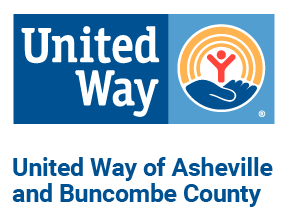You have likely seen the United for Youth Network in recent news as our 8th community partner formally signed onto a new shared agreement. This agreement serves as an accountability tool in how we're collectively meeting our goal of aligning equity and education and ensuring that by 2035, ALL Asheville City and Buncombe County students graduate from high school ready and fully prepared to pursue their goals and dreams.
While United for Youth Network is a new name, the Asheville Buncombe Middle Grades Network it grew out of has existed for many years. This collective of partnerships amongst Asheville City Schools, Buncombe County Schools, representatives from over 50 local health, social service, higher education, and youth service community partners as well as student and family leaders uses a collective impact strategy to convene around a shared vision.
Together, we're working to share resources and strategies to ensure educational outcomes for our local students are determined by the accessibility of opportunities in our community and the quality and strength of our collaborations and are never again predictable based on a student's race, home language, family income, or any other dimension of identity. Together we are actively identifying and removing barriers to opportunity and co-creating solutions that support student success.
Learn More about the United for Youth Network + Partnership Agreement HERE.




